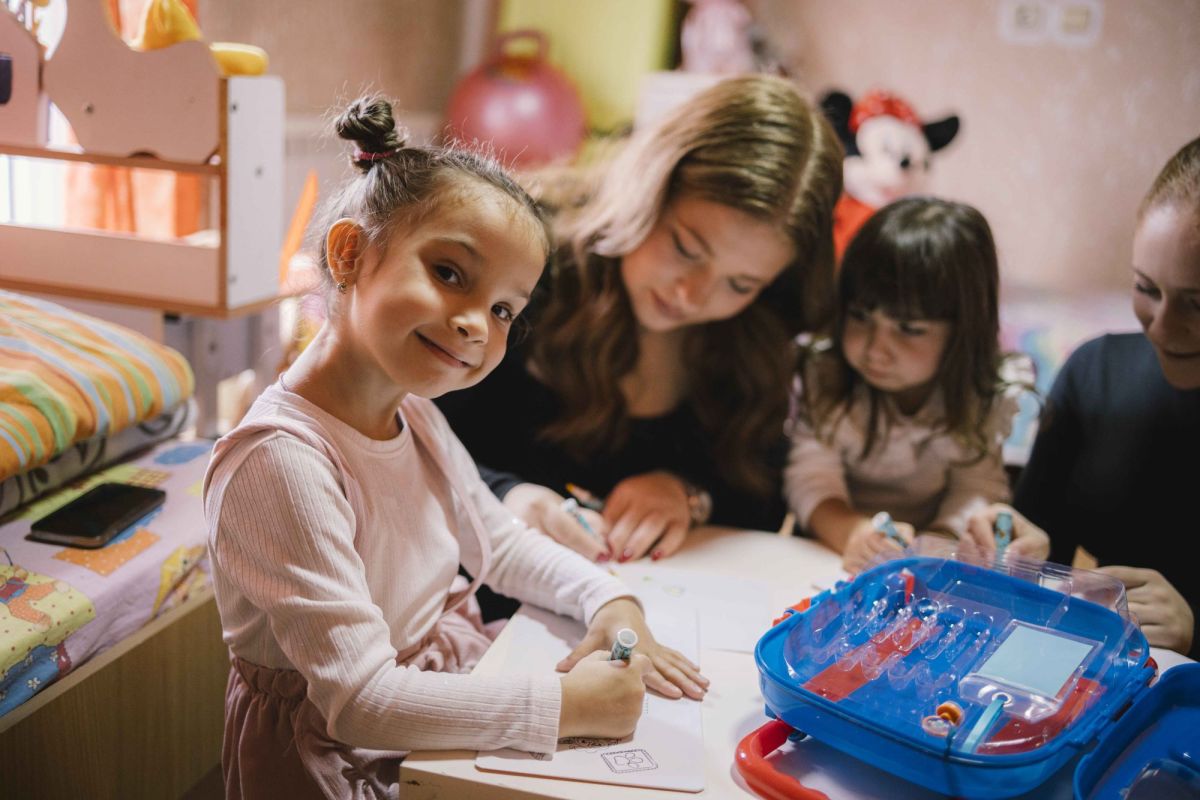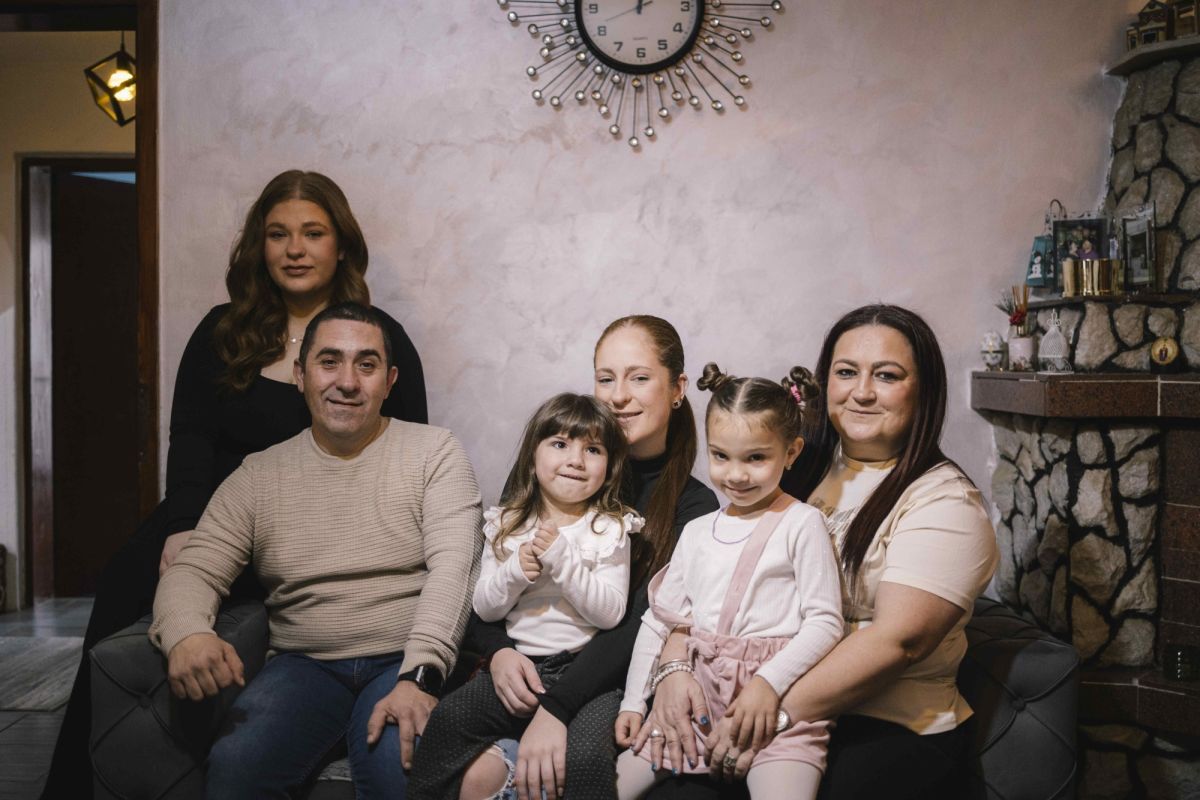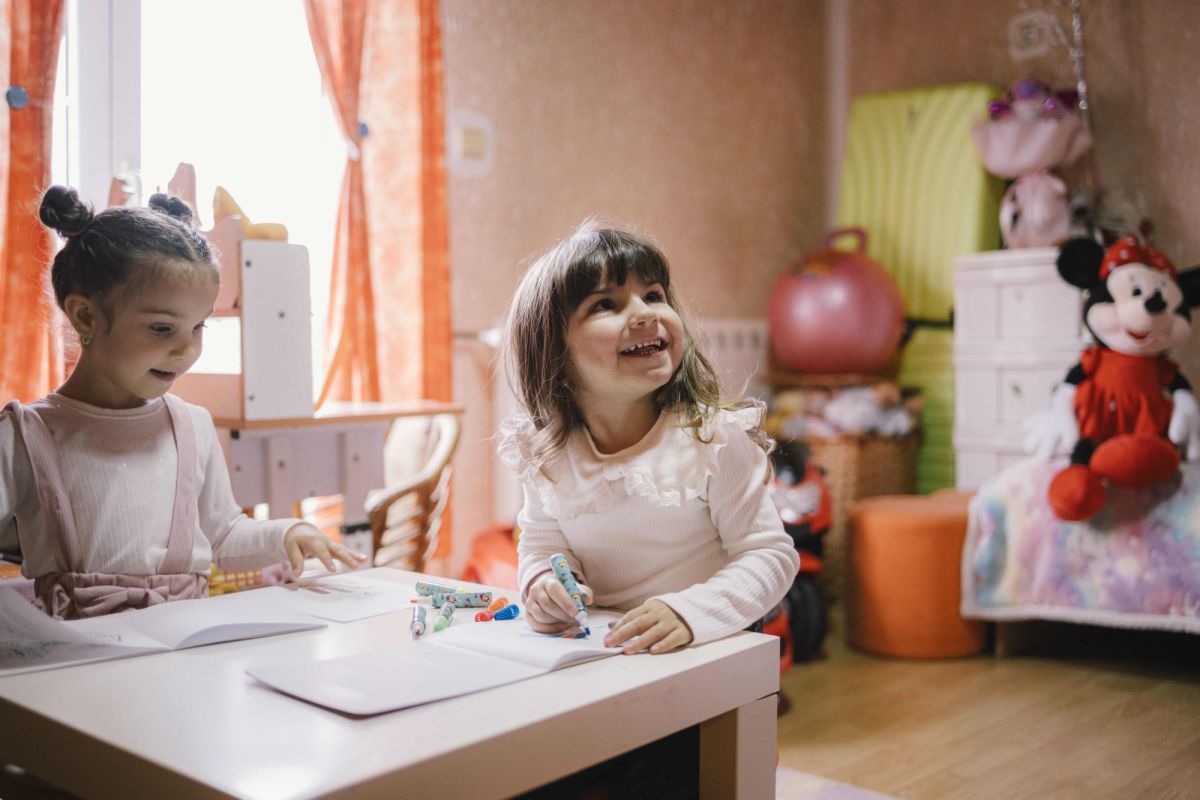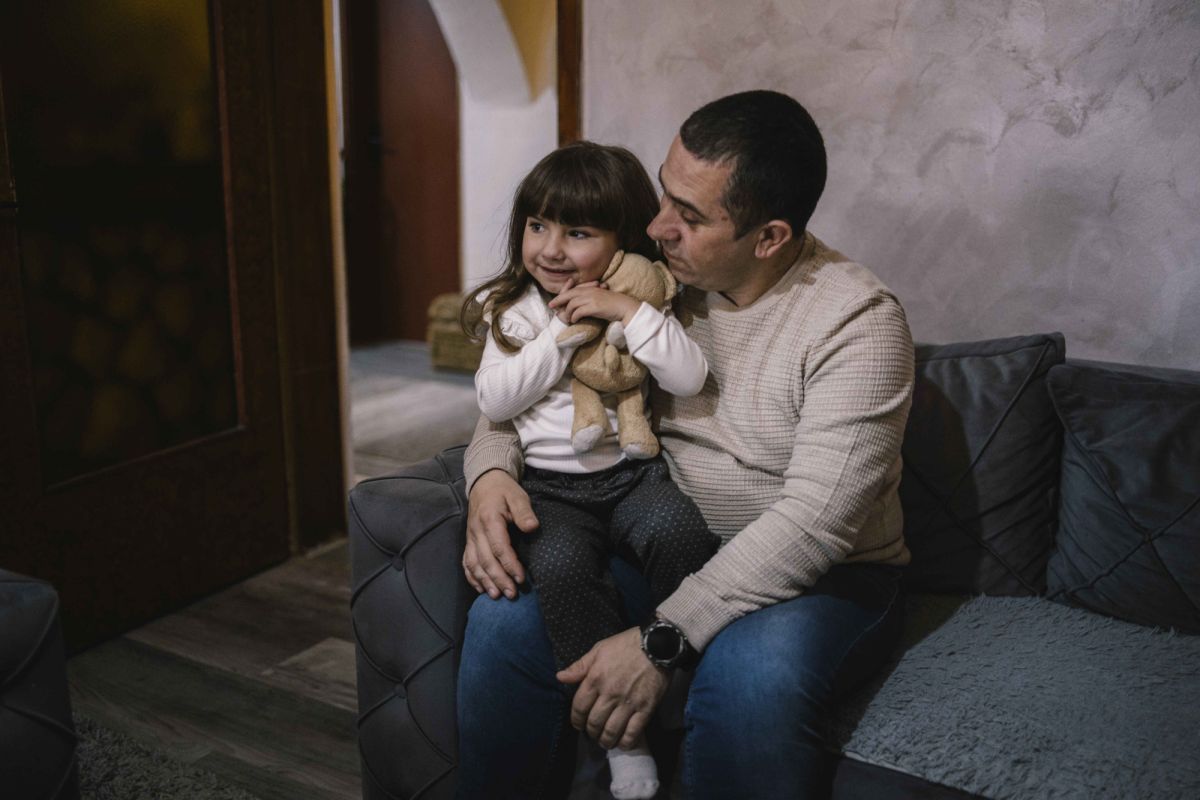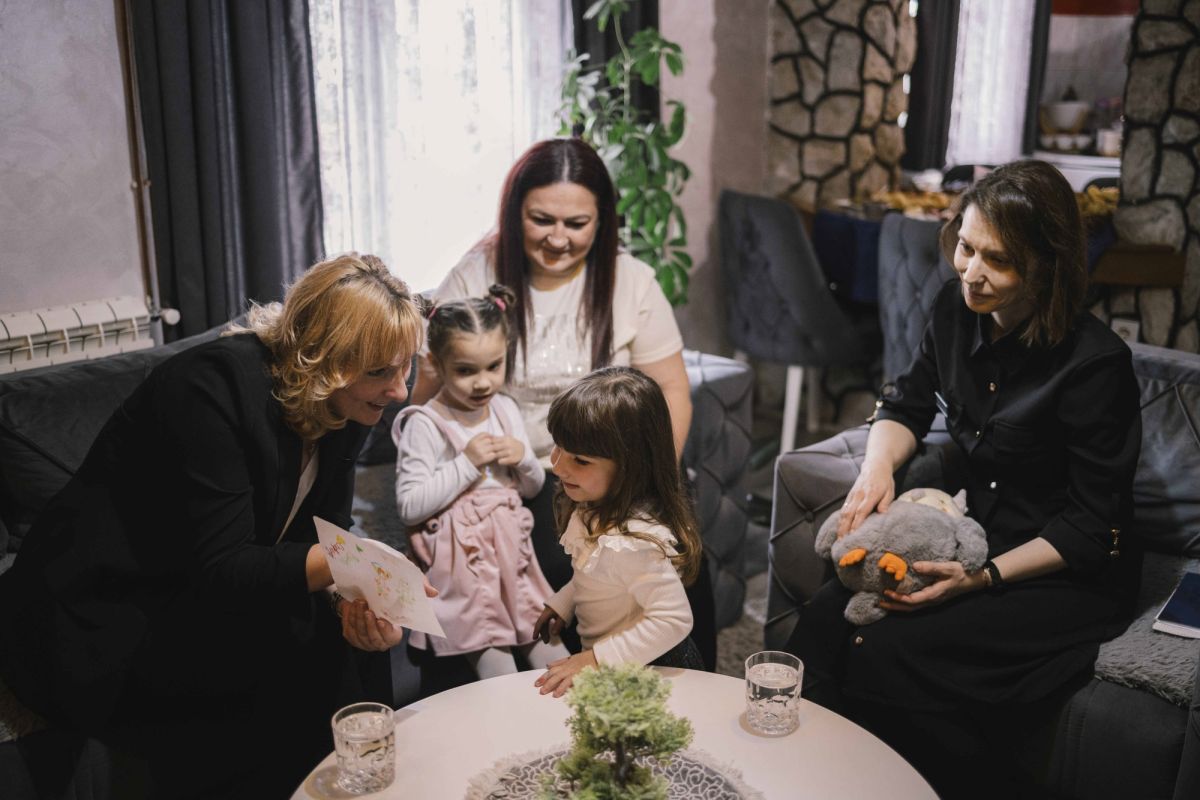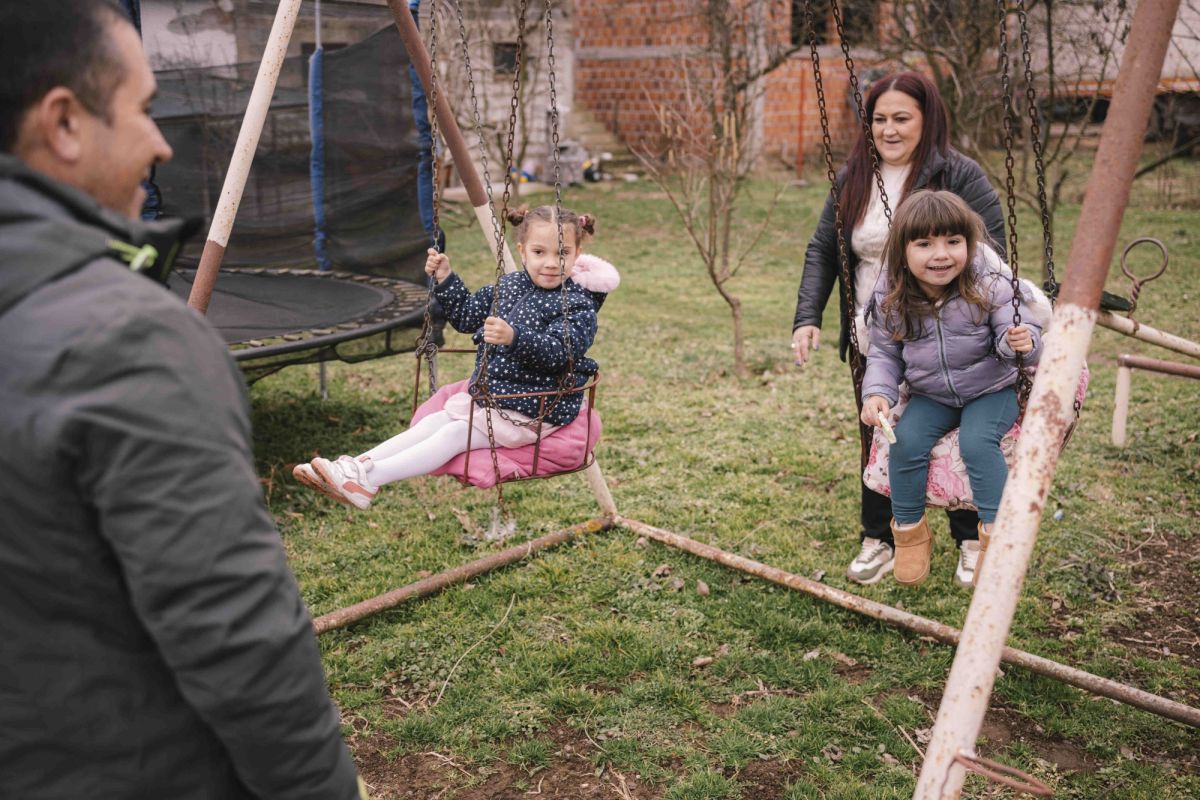Foster Care – A Family Tailored to The Child
Inspired by the experiences of other foster families, Valentina and her husband Ranko decided four years ago to open their home and hearts to children in need.
“In 2021, we completed a training program for foster care. Less than a month later, we received a call saying there was a baby in need of a home. Beba arrived at our home at just four months old, neglected and in need of full care. We had to take her to the doctor regularly,” Valentina explains.
Soon after, Beba’s older sister Ruska, then just a year and a half old, also found a safe and loving home with the Djelic family. From the very beginning, Valentina and Ranko’s daughters were involved in caring for the girls. What started as an emergency placement has since grown into long-term foster care. Ruska and Beba have now been part of their family for three and a half years. They attend preschool, make friends, and, most importantly, are happy, healthy, and loved.
“The children who come into foster families long for love and, in turn, give so much love. We try to be together as much as possible, to learn, to devote as much love as possible,” says Valentina.
Despite his full-time job at a military clinic, Ranko always makes time for all four girls.
“Every summer, we go on vacation, and in the winter, we enjoy trips to the mountains. Birthdays are always celebrated in play centres with friends, and daily playtime is a must,” he explains.
The Djelic family has also provided short-term emergency care for a young boy in need. Their foster care journey has been supported by the training they received for both standard and emergency foster care, along with ongoing support from the Centre for Social Work in Kraljevo and the Centre for Family Placement and Adoption in Kragujevac.
Marija Tomovic, a case manager at the Centre for Social Work, ensures that children in the foster care system are safe and well cared for. She explains that foster care plays a crucial role in supporting children while working towards the best possible future for them.
“When a child is removed from their biological family, the primary goal is reunification. Our aim is to ensure that children in foster care receive a stable family environment, feel safe and secure, experience emotional warmth, and have their developmental needs met. If, after a certain period, this is not possible, legal proceedings may begin to terminate parental rights, opening the possibility for adoption. Foster care is an essential step in this process, providing children with a stable, loving home while their future is decided,” explains Marija.
Foster families are never alone in their journey. Ljilja Vucetic, a foster care advisor at the Centre for Family Placement and Adoption, has supported the Djelic family since their very first days as foster parents. She remains a regular presence in Beba and Ruska’s lives.
“Foster families receive direct and continuous support through the Centres for Family Placement and Adoption and dedicated advisors who are available almost 24/7. A foster care advisor provides guidance, counselling, and supervision to ensure that children receive the best possible care in a family environment,” says Ljilja.
To provide the best support for children, foster parents and professionals need knowledge, skills, and proper training. That’s why UNICEF, in 2024, supported the development of training programs for professionals and foster care candidates “Family Tailored to the Child”. These programs were implemented as part of the “PRO – Local Governance for People and Nature” program and carried out by UNOPS, UNICEF, UNFPA, and UNEP, in cooperation with the Government of the Republic of Serbia, with financial support from the Government of Switzerland. Through this initiative, more than 100 representatives from Centres for Family Placement and Adoption and Centres for Social Work participated in specialized training. Additionally, foster families received targeted training to help them provide the best care possible for children.
“By developing different types of foster care, we aim to strengthen and support foster families so they can provide specialized care and ensure children grow up in a family environment rather than in institutions,” explains Ljilja.
Foster parents do everything a biological parent does, with additional responsibilities that require five core competencies.
„Foster parents play a crucial role in ensuring that every child grows up in a safe and nurturing environment where they can develop and thrive. They help children overcome developmental challenges that may arise from their early experiences and provide the care and stability they need to heal. When a child is separated from their biological family, it is a significant loss. Foster parents support them through this transition, helping them process their emotions and build resilience. Maintaining a child’s identity is also essential, which is why foster families encourage and facilitate contact with their parents and relatives whenever it is in the child's best interest. Foster parents are not alone in this journey- they are part of a dedicated team of professionals working together to ensure that every child receives the care, love, and support they need to build a brighter future,” explains Ljilja.
By definition, foster care is a measure of protection for children who cannot live with their biological families. But in reality, it is so much more. The Djelic family has shown us what foster care truly means-unconditional love, security, and the chance for every child to grow up in a happy, caring home.
For those considering becoming foster parents, Valentina has words of encouragement.
“Anyone who has the means and a love for children should consider becoming a foster parent. The children who come into foster families long for love and, in turn, give so much love,” believes Valentina.
Ensuring that every child has a happy and safe childhood is a responsibility we all share, Ranko believes.
“I want to encourage compassionate people to bring happiness to children, as foster care is a truly humane act. We can help these children grow up in a peaceful environment, support them in staying healthy, finishing school, and one day becoming independent individuals,” he says.
